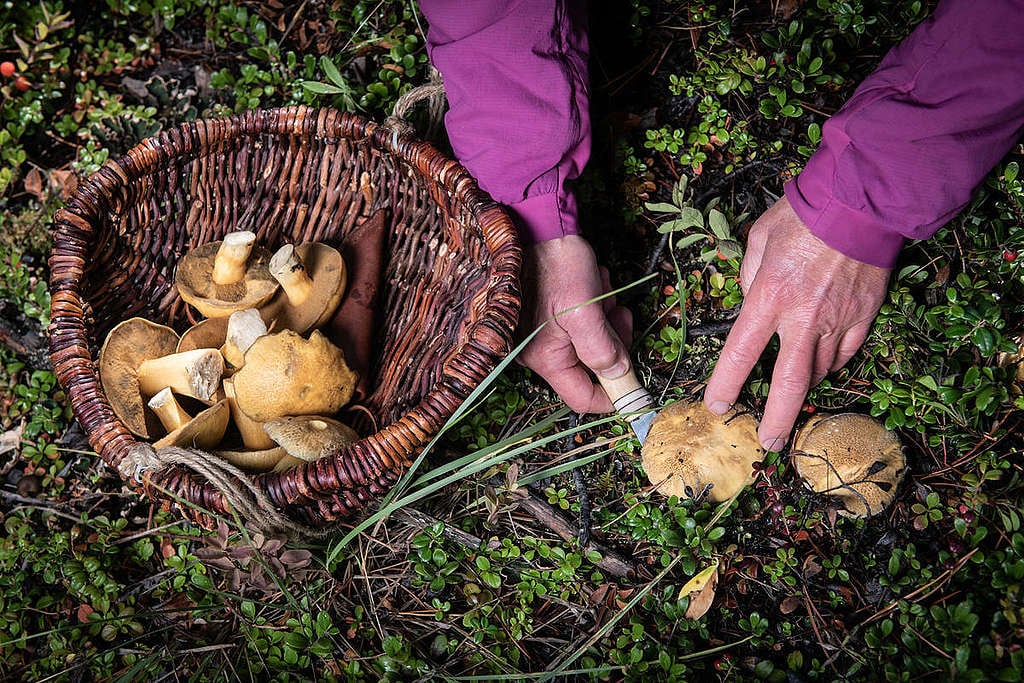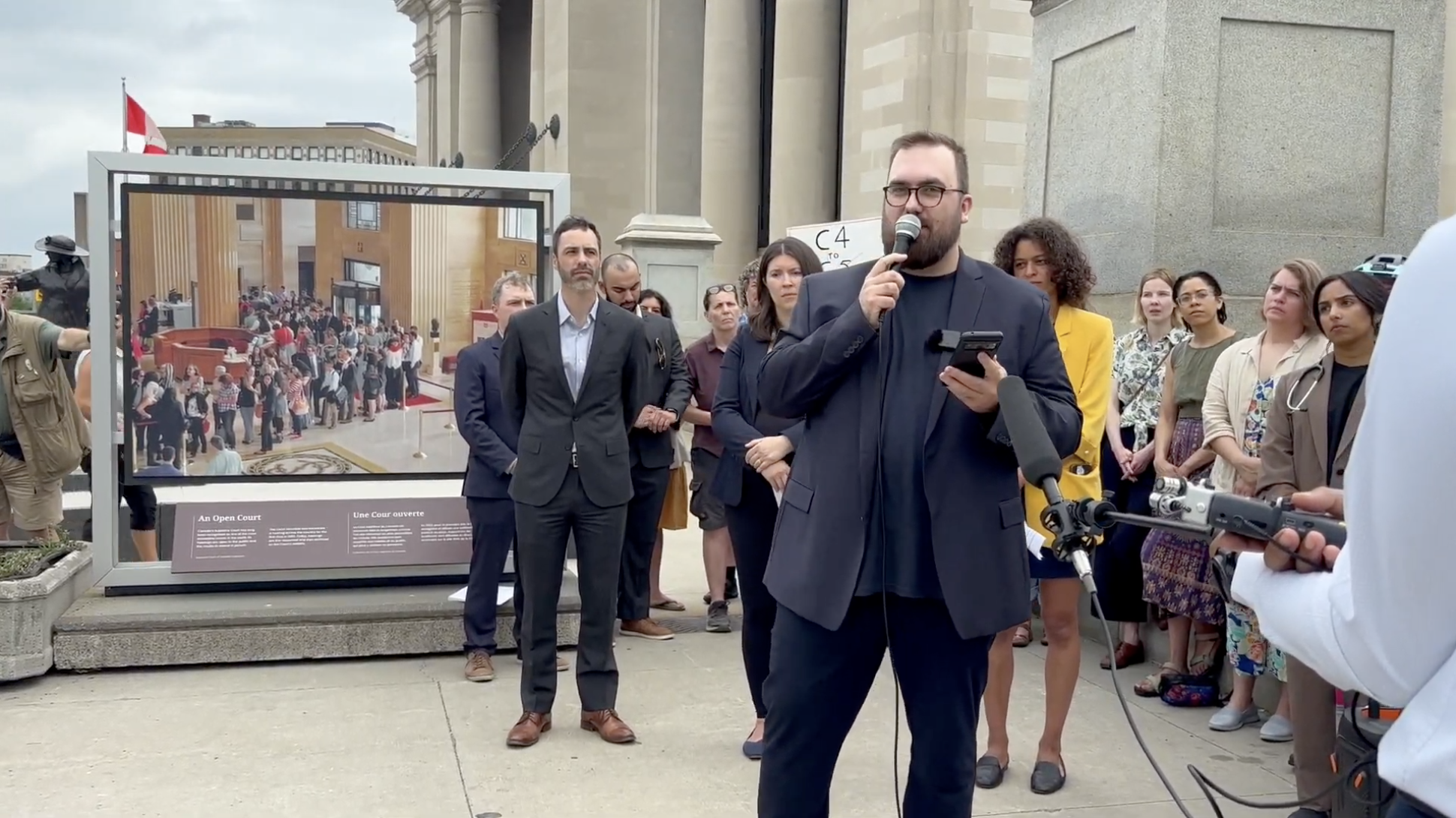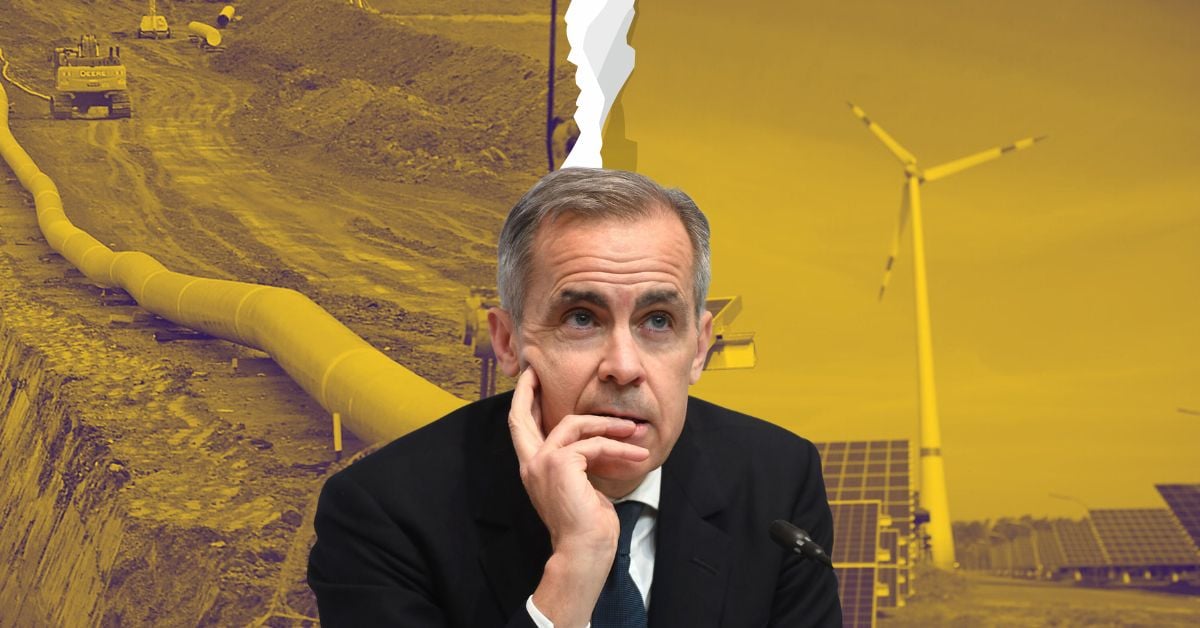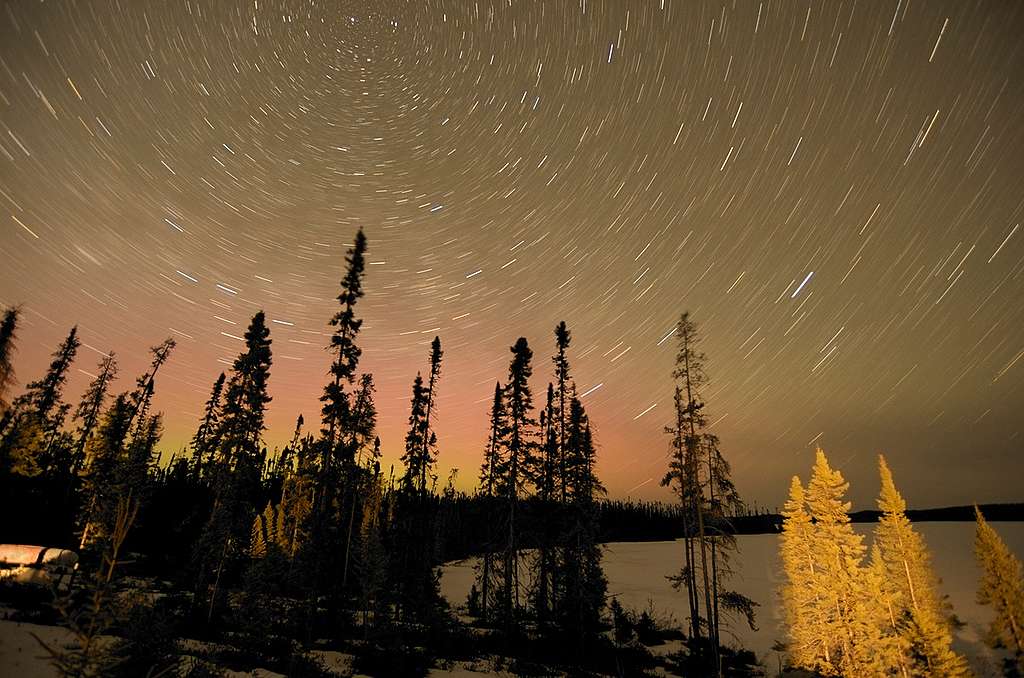
Sign the petition to protect nature and build back fossil free!
Justin Trudeau has been promoting his plan to use $3 billion from the Trans Mountain Pipeline’s future revenues to plant trees since 2019. This scheme was re-packaged in the Fall Economic Update and presented to the public as a big step forward on climate action, with the enormous consequences of a new oil pipeline conveniently ignored.
Let’s be clear – planting trees with oil pipeline money is not building back fossil free, it’s just more of the same.
In the run-up to the Spring Budget, let’s separate fact from fiction when it comes to protecting forests, planting trees and fighting climate change.
- Canada has failed to protect biodiversity and nature
Justin Trudeau’s government has failed to deliver on its international commitment to protect 17% of Canada’s lands and freshwaters. At the end of 2019, Canada had just 12.1% of its land and freshwater conserved, representing glacial progress from 2015 when this commitment was made and Canada stood at 10.5%.
This failure to protect Canada’s forests, wetlands, lakes and rivers has had a devastating impact on the quality of our natural environment, wildlife and biodiversity. Our birds, for example, are massively dying off and at least one organisation has described this as a “bird emergency.” Wildlife loss in Canada is fuelling the global extinction crisis, according to the WWF.
But instead of acknowledging this lack of progress, the Prime Minister made a shiny new commitment to protect 30% of Canada’s lands by 2030. And to make matters worse, instead of investing the resources to get the job done for nature, he distracted us with an old commitment to plant trees with oil pipeline money.

- Protecting forests is best for the climate, not planting trees
Liberal MP Paul Lefebvre recently wrote glowingly about his government’s tree planting, claiming that “planting trees is one of the most effective ways to protect our environment and mitigate the effects of climate change.”
Here’s what some scientists have to say about that:
“The simplistic assumption that tree planting can immediately compensate for clearing intact forest is not uncommon. Nonetheless, a large body of literature shows that even the best-planned restoration projects rarely fully recover the biodiversity of intact forest.” – Professor Karen Holl, University of California, Santa Cruz
“…there is a limit to the carbon that can be stored by newly planted trees – and this carbon is at risk if trees are harvested or if they die from fire, drought or disease as the climate continues to warm.” – Professor Nathalie Seddon, University of Oxford
Greenpeace has also reported on this topic. As a member of the Climate Land Ambition and Rights Alliance (CLARA), we wrote in a groundbreaking report Missing Pathways to 1.5% that:
“Avoiding further loss and degradation of primary forests must be the first priority in combating the climate and biodiversity crises, not only because it keeps emissions out of the atmosphere now, but because it maximizes ecosystem integrity and biodiversity protection and thus resilience in the face of climate change.”
So if protecting natural forests in partnership with Indigenous Peoples and local communities delivers the best results for the planet, then why is the federal government investing in the second or third best option (tree planting) and allowing a whole new oil pipeline in return for it? It just doesn’t make sense.
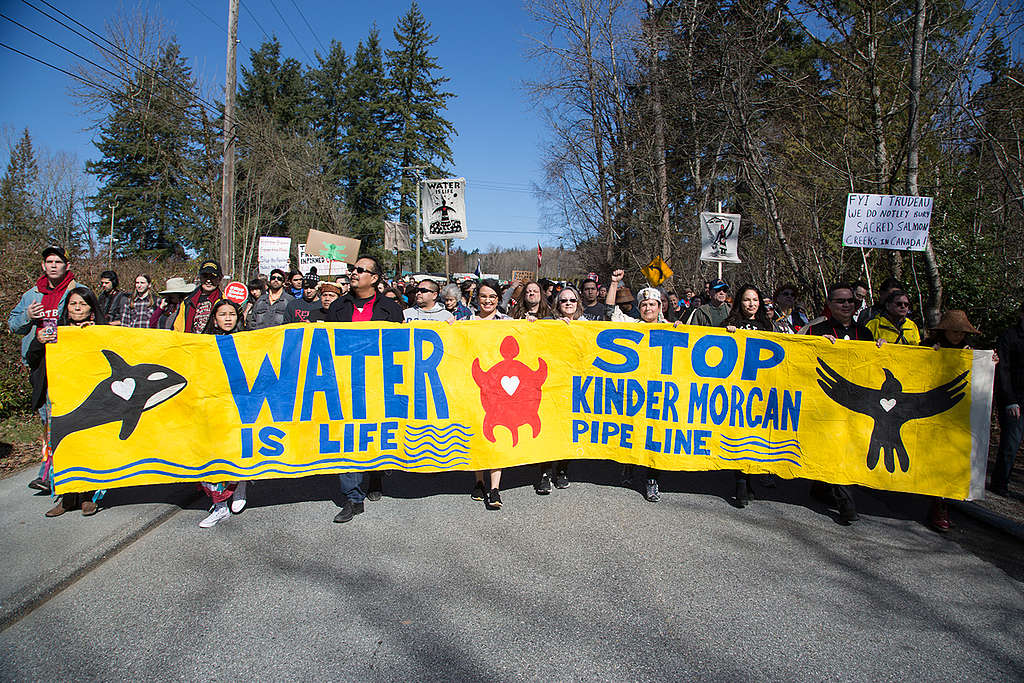
- Planting trees to
excuseoffset an oil pipeline?
Despite the Prime Minister’s cheerleading, planting trees is no substitute for reducing our fossil fuel emissions rapidly. Big oil companies in Canada like Shell have also turned to marketing trees and other “natural” solutions in order to prolong burning fossil fuels and maintain their control of our energy system.
As one concerned citizen wrote in the Guelph Mercury to challenge his local MP Lloyd Longfied: “Planting trees to halt global warming is about as hopeless as drinking beer to stop sea-level rise.” Well said!
Friends of the Earth examined this further in a fantastic new report Chasing Carbon Unicorns I’d recommend you check out. They explain that even planting a trillion new trees simply cannot compensate for ongoing, additional fossil fuel emissions. In other words, we cannot just stuff all the carbon from burning fossil fuels back into the earth. There’s only so much our trees and forests can absorb, especially under pressure from global warming.
The simple fact is that more trees and more pipelines won’t bring us a single inch closer to meeting our climate commitments.
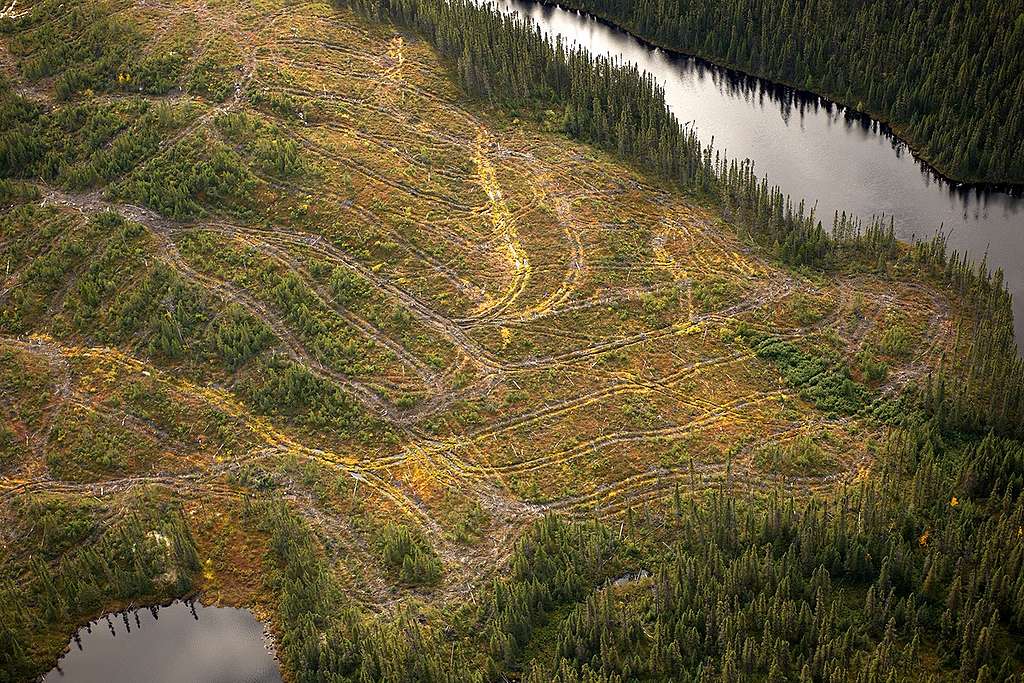
- Inaction on forest protection – a systemic political problem
Saying nice words while failing to protect our forests also perpetuates a systemic political problem in which strong public support for conservation is not matched with adequate government resourcing. This leads to inaction provincially where domineering industries like oil or clearcut logging demonise protecting nature as a job killer.
In British Columbia, old-growth forests have been nearly eliminated according to new mapping. And despite NDP premier Horgan’s earlier pledges, “talk and log” continues as old growth disappears.
In Quebec, a stunning investigation by Radio Canada’s Enquete has just revealed the extent of mismanagement of the province’s forest and the heavy influence of the logging industry.
In Ontario, Doug Ford’s Conservatives are doubling down on the former Liberal government’s policies to exempt the logging industry from endangered species laws.
In Nova Scotia the government recently introduced a Biodiversity Act, which the logging industry immediately gutted.
The list goes on. This is the reality on the ground while the federal government offers nice words but fails to provide real leadership or effectively coordinate the actions required to achieve Canada’s biodiversity targets, as the Environmental Commissioner concluded in 2018.
- How to fix this?
To start, we need a massive investment in protecting nature, Indigenous conservation and building the local economy.
The cost of the federal government’s investment in the Trans Mountain pipeline is ballooning to over $16 billion. That’s a whole lot of money that could be better spent on a green and just recovery. Will this enormous amount of wasted money mean that the government is now unwilling to invest in forest protection? We’re about to find out.
Greenpeace and others are calling on the government to make an urgent $4.8 billion investment in protecting nature, with an emphasis on Indigenous leadership and local economic development. This could begin to loosen the grip of industry on our forests and kick-start a new economy in harmony with nature.
Now that would really be building back fossil free!
